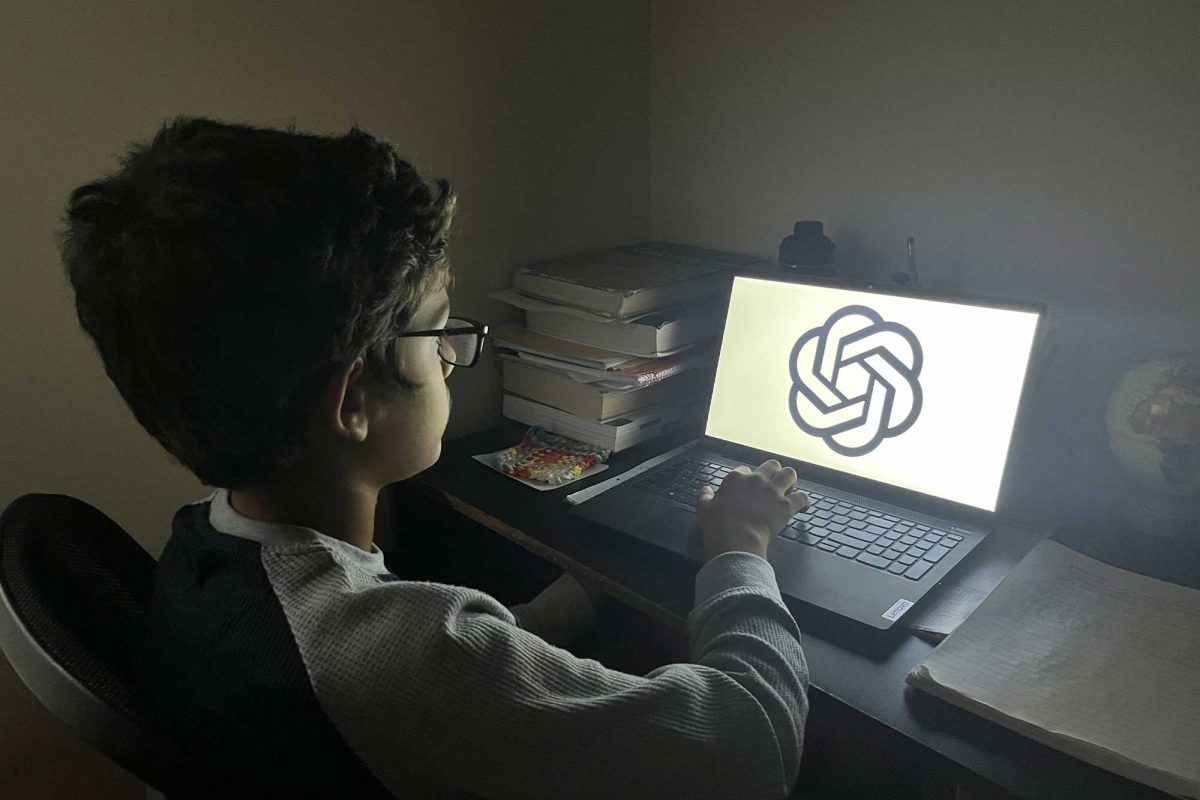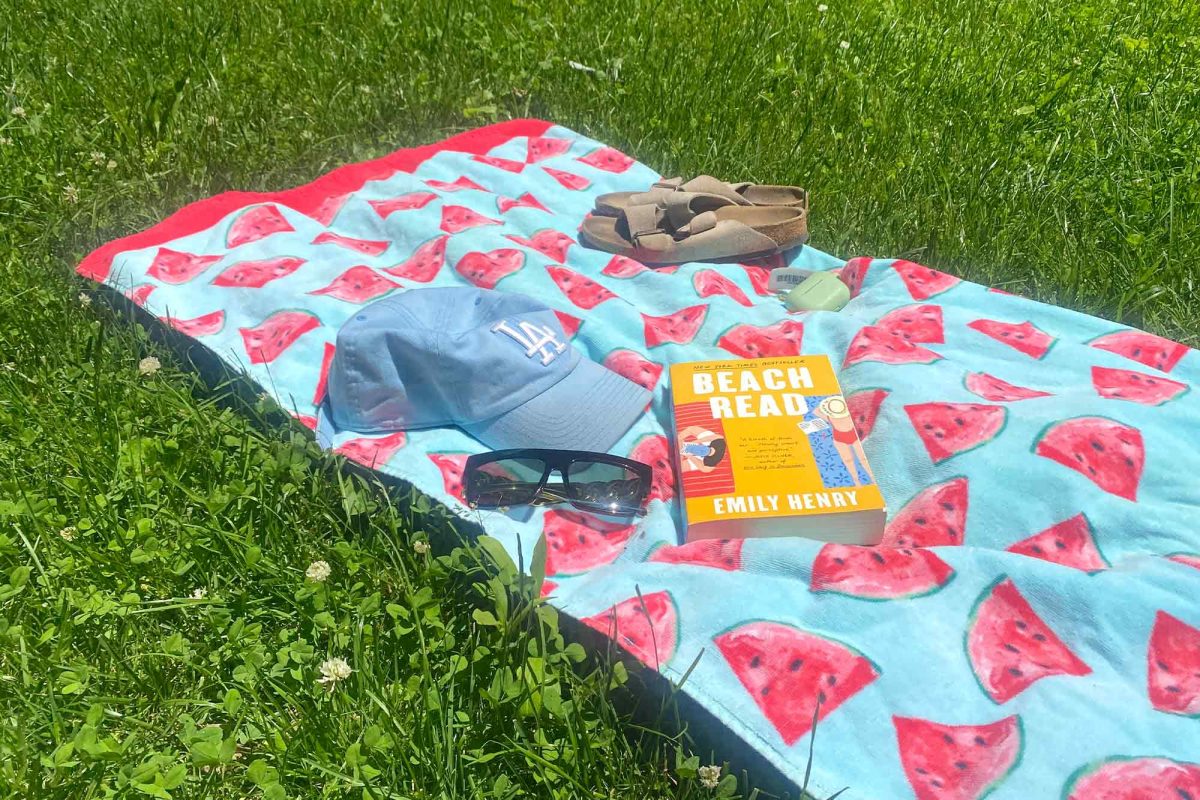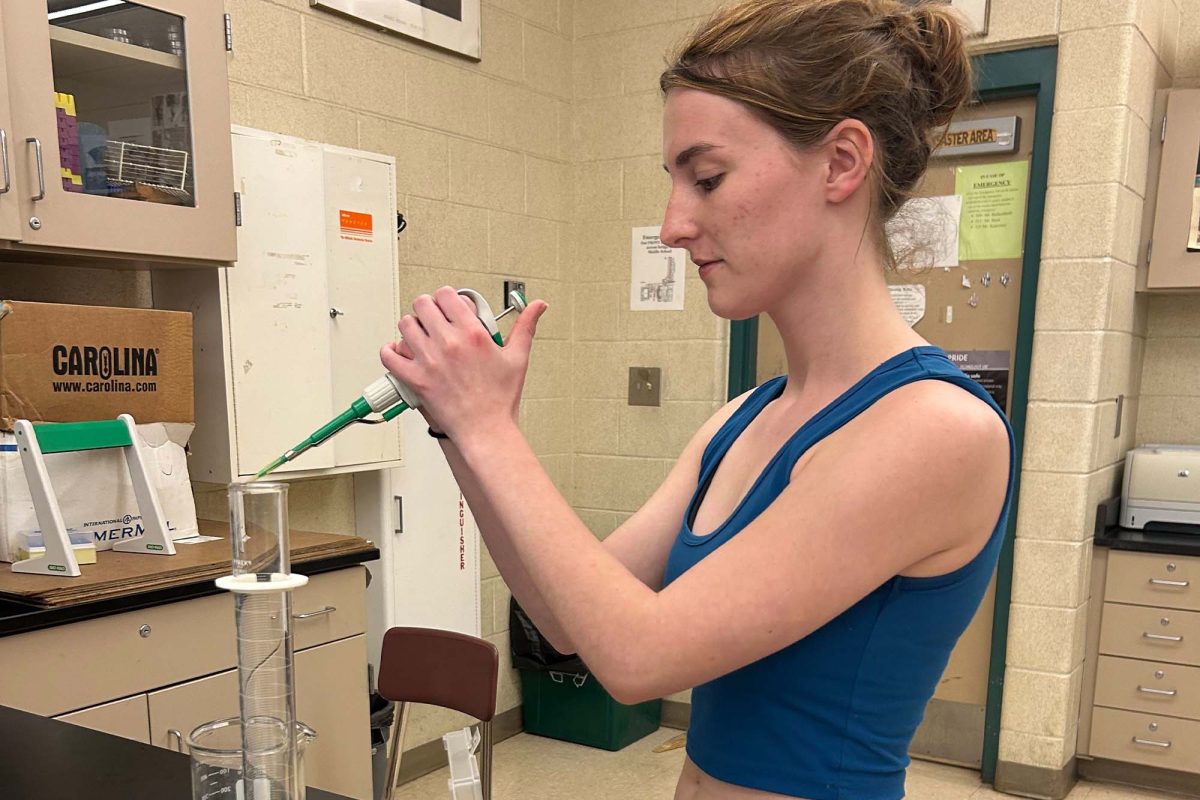Sprinting from class to the locker room, training, back home, and into piles of homework every day can take a toll on student athletes’ mental health.
Mental health is widely known as a very stigmatized subject. In a hyper-competitive high school sports scene, the stigma can grow worse.
In a National Library of Medicine study of 200 high school student-athletes, it was stated that “approximately 91% of all the cohort experienced some level of stress due to sports.”
The study further states that 27% of those stressed students wanted help, but didn’t get it.
Too much stress puts strain on the brain, but it can also impact physical performance.
Another study published in Frontiers, “Stress in Academic and Athletic Performance in Collegiate Athletes: A Narrative Review of Sources and Monitoring Strategies” concluded that decreased levels of mood and increased levels of academic stress could predict injury in collegiate athletes.
Junior Jacob Jurkech will be fencing in the Junior Olympics in December. He also played soccer in the fall for Strath Haven.
“I think there’s always other factors when it comes to stress,” Jurkech said. “And sports can be stressful if there’s a competitive game coming up. But at the end of the day, I think it’d be unfair to blame just the sport.”
Other students, like freshman Ryan Schofield, agree that sports may be stressful at times, but for the most part, aren’t the main stressors. Schofield plays basketball, soccer, and runs track.
“I think it’s kind of just having to run around a lot,” Schofield said.
Athlete mental health is an issue that has been prevalent at Strath Haven for a long time. The foundation Hope for Hallie was started to provide resources and spread mental health awareness in honor of Hallie Jackson.
As a student at Strath Haven, Jackson was heavily involved in sports as she struggled with her mental health. Jackson passed away by suicide in fall 2019. Her parents, Christine Jackson and Kevin Jackson, want student-athletes today to take care of themselves.
“That’s not just athletes, what we’re finding is the teams who reach out to us are stressed with the demands of school, the demands of coaches, and parents as well,” Mrs. Jackson said.
Together, Mr. and Mrs. Jackson began to compile resources to help other teens who are struggling.
“We felt that if we were going to refer someone to get help, we wanted to know who they were and how the process worked. So we, honestly, we had done a lot of research ourselves,” Mrs. Jackson said.
Having easily accessible resources is more valuable than ever now, as the pressure on student-athletes to balance everything on their plate increases.
Their back-to-back schedules play a huge role in their stress and well-being.
“It’s a bunch of schoolwork, studying,” sophomore Kiera Bergin said. She plays soccer, volleyball, and runs track.
“The training for sports, and then going into the sports, and then getting drove there takes a while,” she said. “I feel it does get really stressful at points, but you kind of just have to push through it, you know? Can’t slack,” Bergin said.
The Strath Haven community has begun to have conversations about mental health, which Mrs. Jackson emphasized as one of the most important steps to improving the environment for student-athletes.
“Ultimately, I think, again, goes back to the more we talk about it, the more we normalize it,” Mrs. Jackson said. “And I think the easier it is for people to reach out, whether that’s assemblies, whether that is offering clubs, or whether that is offering mental health training and resource fairs.”
According to Jurkech, the school‘s athletic community has done a positive job of discussing mental health.
“In fencing, there’s been a big issue with mental health. So it’s good to see coaches bring it up because a lot of coaches don’t, but the ones nearby here do,” Jurkech said.
Bergin thinks the coaches could do more to help students.
“I feel like they address [athlete mental health]. But they don’t really do that much, like they say something, but then they don’t do anything; they don’t follow up,” Bergin said.
If you’re worried about someone you know, whether that be a friend, a family member, or just a fellow classmate, Mrs. Jackson urges you to communicate your concerns with them.
“Try and normalize the conversations to make it easier for people to reach out, to talk about it themselves. And if you’re concerned about someone, directly ask them, ask them if they’re struggling, and how you could help them.”
















